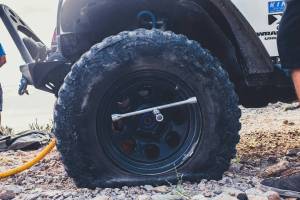
How to Change a Tyre on Your 4x4 Rental: A Step-By-Step Guide
The lure of the open road is what draws so many adventurers to southern Africa....
 7 January 2026
7 January 2026 
Zimbabwe is an exceptional destination for a self-driving road trip. From the awe-inspiring Victoria Falls to the rich wildlife in Hwange, Zim offers visitors a wealth of natural wonders. Self-driving in Zimbabwe allows you the freedom to explore at your own pace and tailor your journey to suit yourself. So if you love a hands-on and independent travel experience, Zimbabwe is the ideal destination for your next adventure!
Before embarking on your self-driving tour, ensure that you do your homework and get good relevant guidance. Ensure you have all the necessary documents, including a valid driving licence, vehicle registration, International Driving Permit and insurance papers.
Familiarise yourself with Zimbabwe’s road rules, such as driving on the left-hand side of the road, obeying speed limits, and avoiding the use of mobile phones while driving. Knowing basic driving etiquette, like giving way to emergency vehicles and not overtaking in dangerous areas, is also essential. Follow the four-way stop rule, especially at intersections where all four legs of the road have stop signs.
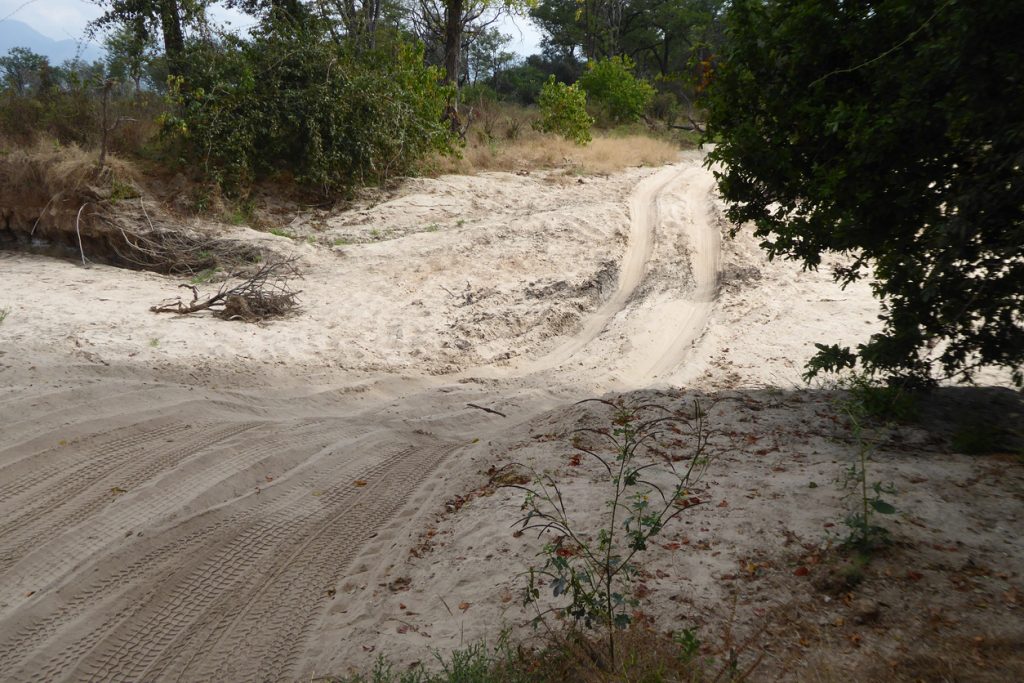
Above: Mana Pools – situated near the bank of Zambezi river.
Wearing seatbelts is mandatory in Zimbabwe, and all vehicles must always have a serviceable and certified fire extinguisher on board. If you want to hire a vehicle in Zim you have to be at least 21 years of age and have held your driver’s licence for at least a year. There are toll roads in Zimbabwe, so you need to plan for that.
As we’ve said, Zimbabwe is ideal for the self-drive explorer! However, it’s crucial to plan your route carefully. Consider factors like road conditions, local security, weather patterns, and, very importantly, your budget. Don’t be shy to look at cost-saving options – they can make a difference!
You need to identify specific destinations, what you want to do there, what accommodations are available, and how long you want to stay. If you have specific places and attractions that you want to see, you need to plan your itinerary around that.
Here is a brief list of some of Zimbabwe’s attractions you might want to consider:
By African standards, Zim’s roads are in good condition, so a self-drive is a very viable option. You can tackle your trip with a 2-wheel-drive vehicle, but it’s not recommended. Some national parks, like Hwange, allow self-driving without a 4×4.
However, a 4×4 vehicle is advisable, especially if you plan to explore remote areas. Using a 4×4 enhances your mobility and capability to access more difficult terrains.
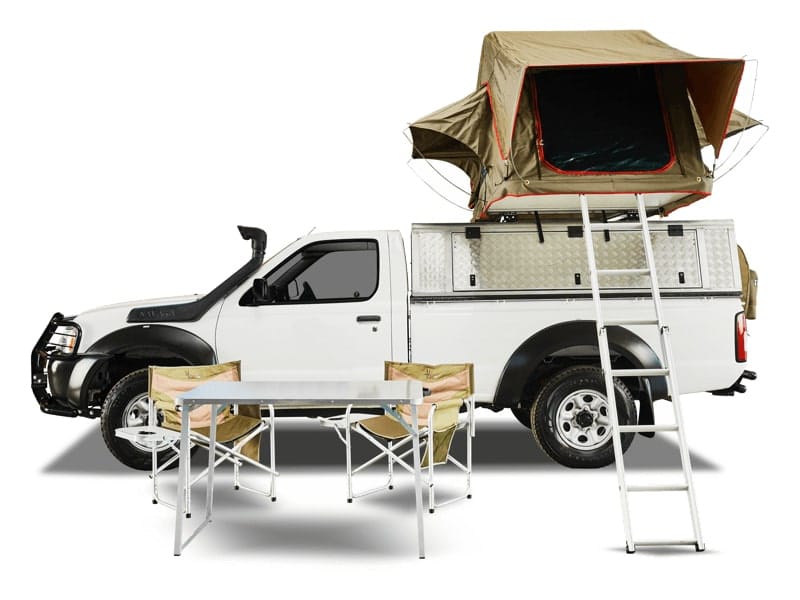
Above: MSEP Nissan Single Cab Petrol Equipped 4×4, Hire Now!
In wildlife reserves like Mana Pools and Hwange National Park, a 4×4 with a higher ground clearance is best. Safety also enters into it – having a reliable 4×4 can contribute to a safer, more secure and more comfortable self-drive experience.
If you’re going to use your own vehicle, the next step is ensuring it’s properly prepared. Make sure that it’s been recently serviced. Make sure the brakes, battery, engine, and the tyres are in tip-top condition. It’s always a good idea to travel with a few essential spares like an extra fan belt, fuses, and an extra spare wheel.
Also, make sure that your emergency first-aid kit is fully stocked. Having a first-aid manual on hand is also a good idea. It’s also important that you travel with plenty of water, non-perishable foodstuffs, an emergency blanket, a flashlight and extra batteries.
Make sure that you have all your personal and prescription medications with you in sufficient quantities to last the whole trip.
Bear in mind that a third-world country like Zim does not necessarily have the working infrastructure that ‘first-worlders’ are used to! However, Zimabawe is considered safe to visit and your trip should be without incident if you follow travel advice and stick to the rules and regulations.
Petty crime like theft and pickpocketing do exist, however, so practise common sense. Keep your car doors locked, your windows rolled up and don’t leave valuables in full view in your car. Potholes are common, and traffic lights don’t always work.
Also remember that malaria is prevalent in Zimbabwe, so take malaria prophylactics with you. Avoid taking photos of official buildings and don’t criticise the government in public. Same-sex couples should be discreet when making hotel bookings or going out in public together. Same-sex marriages are banned in the country.
Cars, animals and pedestrians generally share the same roads, so you have to be alert at all times. These days roadblocks are less frequent than they used to be, but it’s essential that all your regular documents are in order and that you have them with you at all times when driving.
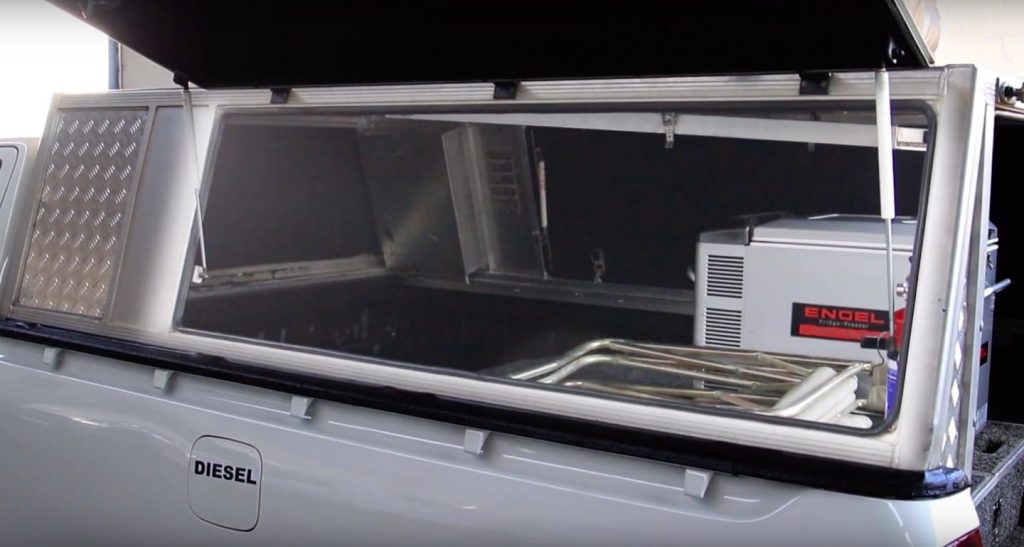
Above: Nissan Double Cab 4×4 Equipped Boot Space
And you’ll need to be very patient when crossing borders in and out of Zim! There are still frequent shortages of petrol, water and electricity, especially in more remote areas, so make sure to take supplies of water and petrol with you.
Fuel availability in Zimbabwe can be sporadic, especially in remote areas, so make a point of always filling your tank when you can. Carry extra fuel in approved containers (metal, not plastic), and keep cash on hand many fuel stations don’t accept card payments. Make sure that you check where on your route the petrol stations are located.
Zimbabwe has a mix of tarred and dirt roads. Road conditions in Zimbabwe vary, but in general they require caution as we’ve already indicated. Most major roads are in fair but deteriorating condition, and they often lack passing lanes, shoulders, and proper lighting and road markings, so traffic accidents are common.
Driving outside main towns at night isn’t advisable at all, and driving at night is to be avoided if at all possible. Rainy conditions will reduce visibility even further and make the roads slippery.
Useful real-time traffic updates are available for Zimbabwe and it’s important to stay informed about road conditions at all times. Road signs are standard, and often not present, especially in remote areas. A reliable GPS system is important, and you’ll need to back that up with up-to-date detailed paper maps as well.
Zimbabwe is home to a wide variety of incredible wildlife which is amazing to see, but animals carry significant dangers.
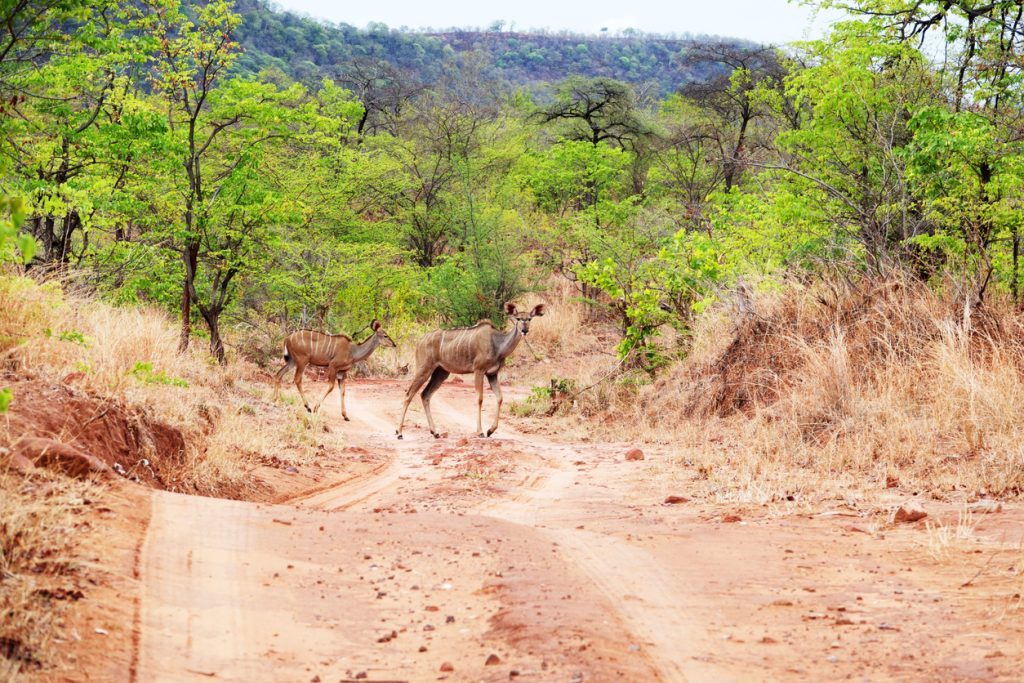
Above: Two female kudus seen during a game drive in the national park.
You’ll often find wild and domestic animals on the road. Cattle, sheep, horses, and antelopes like kudu pose a significant risk to drivers. Here are some general pointers to keep in mind:
Zimbabwe is generally considered a safe country, but you need to take sensible precautions during your trip. Here are a few fairly self-evident points to bear in mind:
When embarking on a self-drive adventure in Zimbabwe, preparation for emergency situations is crucial.
Here’s how to ensure your safety:
Zimbabwe is known for the friendliness and warmth of its people, and being respectful to the local people and officials goes a long way in ensuring you have a smooth journey. Learn a few basic phrases in the local language, and try to learn about the customs related to greeting people properly and politely.
Politeness is highly valued in Zimbabwe. If you understand local customs, taboos, beliefs and cultural practices, you are less likely to give offence unintentionally. Some knowledge about local laws, customs and regulations could also help you avoid legal complications.
Your self-driving adventure in Zimbabwe is an incredible experience just waiting to unfold! With the right planning and preparation, it will be a deeply rewarding way to explore this beautiful country. If you’re looking for a reliable 4×4 rental, Drive South Africa can assist you with affordable 4×4 rental in Zimbabwe.